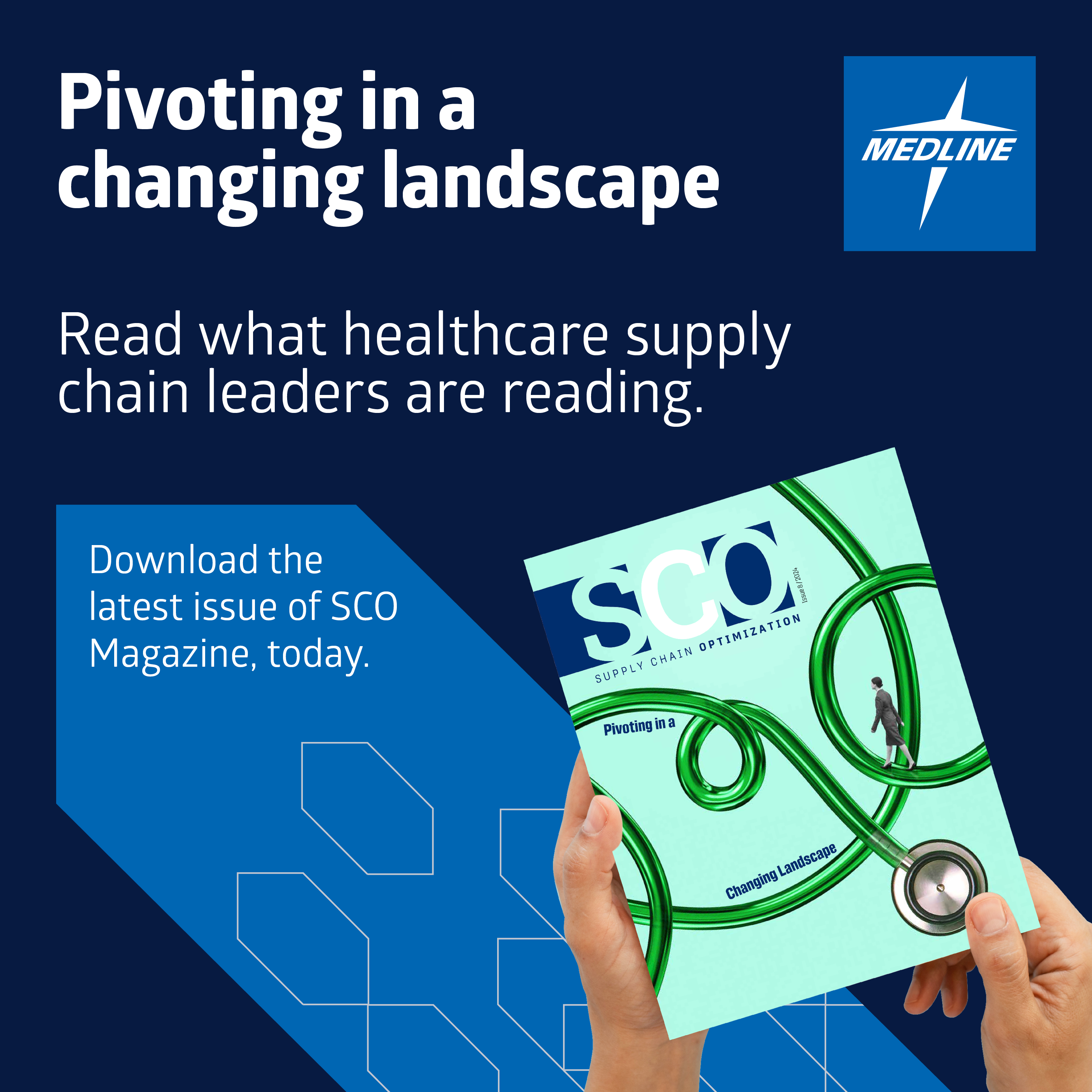Healthcare supply chain leaders weigh in on education

AdventHealth and The University of Kansas Health System discuss growing interest in the healthcare supply chain field
By Medline Newsroom Staff | May 17, 2022
In response to the healthcare sector’s rapid growth, universities and organizations across the nation are implementing formal education programs to help train and prepare the next wave of industry professionals. As a result, it’s becoming more common to see undergraduate and graduate programs focusing on supply chain and its various components, like logistics, with more students and career-transitioning professionals pursuing supply chain education than ever before.
Medline recently spoke with healthcare leaders in supply chain to gain insights for current and future generations pursuing careers in this field. Marisa Farabaugh, MBA, senior vice president and chief supply chain officer at AdventHealth, and Janie Ott, MBA, vice president of supply chain at The University of Kansas Health System, rejoined Medline in a discussion, this time about supply chain education and the role it plays in the future of healthcare supply chain leadership.
Leading the healthcare system’s Supply Chain Residency program, Farabaugh has noticed a significant influx in applicants over the last couple of years.
A desire to be part of the solution
“Years ago, supply chain wasn’t residents’ first choice,” said Farabaugh. “I think a lot of residents saw the opportunity to make a difference in supply chain after the pandemic and be part of the solution so disruptions don’t happen in the future.”
Resiliency has been the biggest priority for the healthcare supply chain during the pandemic, with a focus on sustaining the present and being better prepared for the future. AdventHealth’s Supply Chain Residency program narrows the lens on succession training and real-world experience, which allows residents to develop skills in different parts of the sector, such as data analytics, sourcing, and facility and warehouse operations.
Farabaugh emphasizes the importance of real-life experiences and its connection to setting residents up for success. She says, “It’s incredibly humbling to listen to our residents’ experiences. Healthcare supply chain is so different than any other industry. Our role isn’t why healthcare exists, but it’s about helping healthcare run.”
Ott is also a strong advocate for supply chain education and oversees supply chain’s dynamic internship program. Ott says that many stumble into the supply chain industry and have made later career transitions into the field, like herself. Now, Ott is enthusiastic about the various generations wanting to get a piece of the industry.
“Embracing young professionals and asking for their opinion are extremely important, as our youth is sometimes overlooked,” said Ott. “It’s interesting how the supply chain industry has evolved into a melting pot of professionals with diverse backgrounds. Everyone has a unique story about how they got here.”
Two former students, Ryan Coughlin and Frampton “Tate” Rowland, studied supply chain at the University of Kansas and are now working directly for The University of Kansas Health System as analysts.
Touching all aspects of business
“What attracted me to supply chain was the versatility and the constant evolution in the field, paired with the fact that supply chain is in every industry and touches all aspects of business. What also drew me to it, is that new opportunities present themselves every day,” said Coughlin, sourcing analyst. “I have the opportunity to learn a wide array of fields, and the chance to work with anyone from a vendor to a nurse. This allows me to get a broad understanding of not only supply chain, but also healthcare and how supply chain is vital to patient care.”
Rowland, a data analyst, started his academic career in business marketing, but pivoted to supply chain after taking KU’s supply chain and information technology-related courses.
“The Supply Chain Management degree gave me the specific tools and abundant knowledge of the supply chain sector to succeed within my career at The University of Kansas Health System,” said Rowland. “My favorite part about my role as a data analyst is having the opportunity to collaborate with all of the supply chain teams at The University of Kansas Health System. Working jointly with these different teams has given me a broader outlook of the health system as a whole, and has helped me understand all of the ins and outs of a healthcare supply chain.”
Another dynamic shift happening in the healthcare supply chain is that medical professionals are becoming more multifaceted in both the clinical and operational components of the industry.
“There’s an opportunity to weave in supply chain training into clinical programs,” said Ott, who spent over 20 years working in the clinical world. “Supply chain used to be very tactical and transactional. Now, you infuse that with healthcare and clinical expertise and you’ll take strategy to the next level. That’s what drives me; pulling these two worlds together.”
The healthcare supply chain sector is rapidly evolving, and the need for professionals in this space will continue to drive more educational programs. The industry is expected to grow to $4 billion by 2027.
Medline Newsroom Staff
Medline Newsroom Staff
Medline's newsroom staff researches and reports on the latest news and trends in healthcare.
